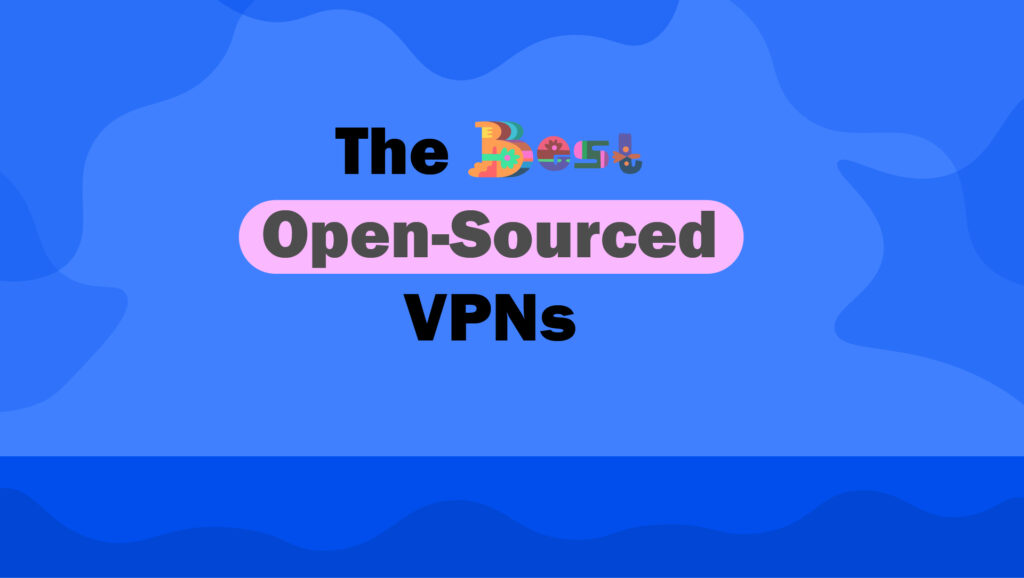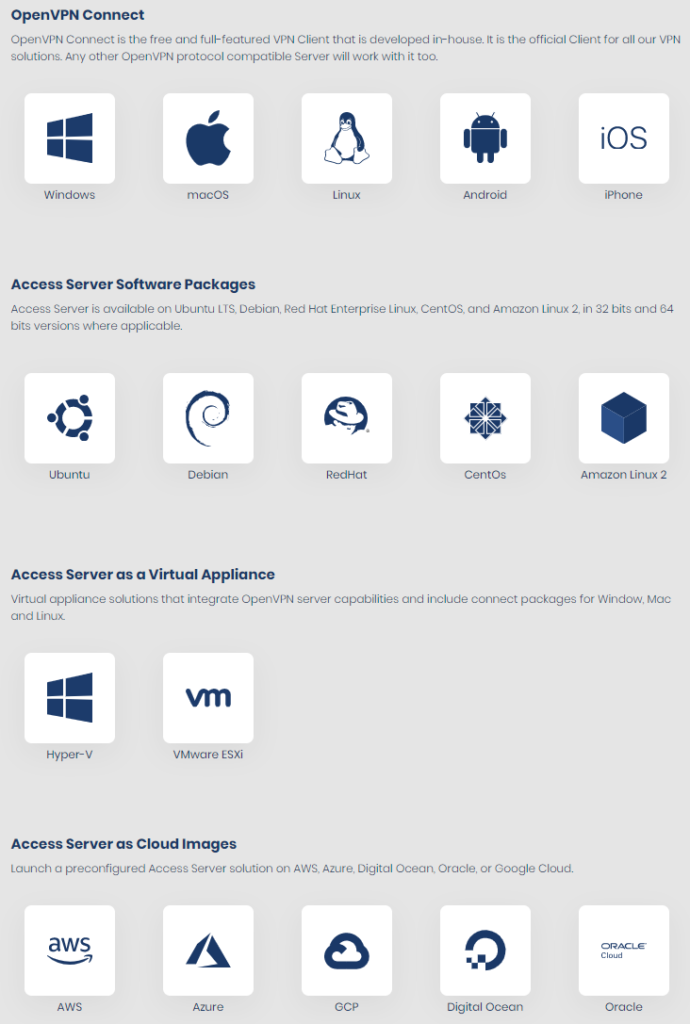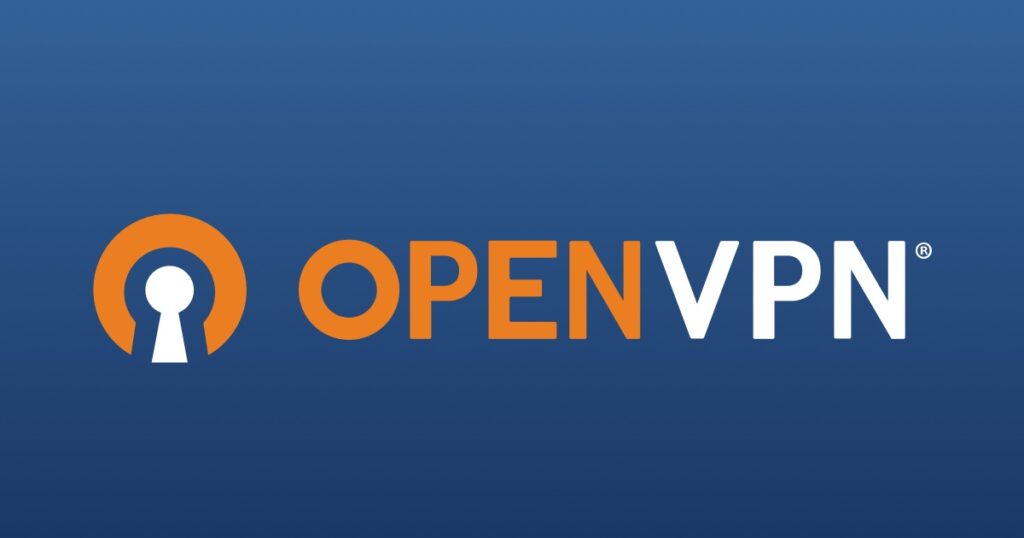We may earn a small commission if you choose to purchase from our links (at no extra cost to you!)
Best Open-Source VPNs

As privacy is becoming more of a luxury rather than a basic need, companies are trying to gather as much information/data on users as they possibly can. They often use the collected data and sell it to third parties in order to create advanced targetted-ads or worse.
On the brighter side, we at least have VPNs to keep us safe right? Well yes, but there have been some issues with some heavily promoted/popular VPNs being infiltrated by hackers, this has created yet another privacy issue.
Is there a solution to this issue? Yes, an Open-source VPN. Although they aren’t exactly 100% foolproof they’re far more secure and have a much higher reputation than regular close-source VPNs. Open-source VPNs are much more uncommon than regular close-source VPN services, mostly because they don’t appeal to masses and are trickier to set up.
The biggest upside to an open-source VPN is that all of the source code is easily accessible to the public, this ensures that the company isn’t hiding anything from the users. The encryption protocols used on open-source VPNs are SSL/TLS. SSL/TSL protocols are very secure and have been tested and improved over two decades.
But on the other hand, there are multiple downsides you might encounter while using an open-sourced VPN. Open-source VPNs tend to lack extra features that closed-source VPNs have such as an automatic kill switch, malware blockers, multi-hop, DNS leak protection and more that you often find in “regular” or closed-source VPN services. If you’re interested in the best VPNs (not open-sourced) we have created a list for the best VPNs.
Some users have higher priorities to privacy rather than the extra features. If you value privacy higher than all the extra features you should look into open-sourced VPNs. That said, here are the 5 best-open-sourced VPNs:
The number one place in this list is OpenVPN. OpenVPN is a full-out open-source VPN created for both enterprises and regular users. Their version for regular users is called Private Tunnel, and their version for business offers the same as Private Tunnel plus additional features that regular VPNs might offer. OpenVPN might not be as easy to set up as other VPNs.
The big advantage that OpenVPN has compared to other VPNs is its compatibility with devices and different operating systems. It works well with Windows, Linux, mobile, iOS, or anything you want– just as long as you can access the cloud. It’s also efficient and puts much less responsibility on the client-side. See the full list of OpenVPN compatibility below:



OpenVPN’s flexibility and compatibility makes it the best open-source VPN for Windows and the hands-down most recommended and popular VPN. With OpenVPN, you can activate the encryption, certification, and authentication features of OpenSSL library for further protection. It offers great support for dynamic IP addresses, DHCP (Dynamic Host Configuration Protocol), and it can be ported to popular operating systems.
OpenVPN is also great at traversing NAT firewalls and firewalls, meaning it can bypass firewalls and gateways that could block the connection. OpenVPN also supports both the UDP and TCP transports.
2. SoftEther VPN - multi-protocol VPN, free, open-source



SoftEther is the short form of Software Ethernet and started out as a project by a student attending the University of Tsukuba located in Japan. It’s a free, open-source VPN that supports multiple VPN protocols. SoftEther VPN Bridge and VPN server run on Windows, OSX, Linux, Solaris, and FreeBSD, and the client app works on Linux, macOS, and Windows.
The VPN Bridge is often used only for enterprises that want to set-up site-to-site VPNs, meaning the individual users will only need to have the server and client programs to set up remote access. SoftEther can bypass firewalls and traverse NAT firewalls. If you encounter a restricted network that only allows ICMP and DNS packets, you can use SoftEther’s VPN over ICMP or VPN over DNS options to bypass the firewall. Another great feature about SoftEther is that it works with both IPv4 and IPv6.
SoftEther VPN utilizes an ultra-optimized SSL-VPN protocol that offers firewall bypass/resistance, fast throughput, and low latency. SoftEther VPN supports SSL-VPN, OpenVPN, IPSec, L2TP, and L2TPv3 protocols. SoftEther’s set-up process is easier than OpenVPN’s and strongSwan but still requires some technical knowledge.
3. Openswan VPN - The Best Open-Source VPN for Linux



Openswan VPN is a popular open-source VPN that works especially well with the network security of Linux devices. It’s been around since 2005 and requires a bit of knowledge and effort to get it working, but there is an in-depth wiki plus an activity community.
Openswan is an IPSec implementation for Linux and even comes pre-installed on some versions of Linux (such as Fedora, Red Hat, Gentoo, Debian, and Ubuntu). You can also set up IPSec links with enterprise computers and mobile clients. Openswan VPN is also compatible with different IPsec extensions such as x.509 Digital Certificates, IKEv2, NAT Traversal, and the list goes on.
4. strongSwan



Yet another VPN with swan in its name. strongSwan offers a wide range of operating systems as it can run on Android, Windows, iOS, Linux, FreeBSD, and more. They also offer an official Android app on the Play Store which can make the setup process much easier.
strongSwan uses either the IPsec or IKEv2 protocol. When compared to OpenVPN, the IKEv2 protocol connects much quicker while offing similar security and performance. This can be convenient as you don’t have to install yet another app on the client, as the latest devices support IKEv2. strongSwan can traverse NAT firewalls.
strongSwan isn’t the easiest VPN to set up and especially it isn’t the easiest to use, even though it has a good amount of documentation and active members. The VPN is catered towards users who have more experience and is great for enterprises.
5. Libreswan - An open-source, reliable VPN



Libreswan is a free and open-source VPN service that is based on the popular IKE and IPsec VPN protocols.
This open-source VPN is great if you’re a Linux user since it uses a built-in “XFRM” IPsec stack and DDNS crypto library. The VPN is compatible with Linux distribution such as RHEL/EPEL, Arch Linux, and Fedora. Libreswan is an active VPN that has been present for 15+ years, meaning it earned its trust in the community.
6. freelan - best open-source VPN for Windows.



Freelan is a great open-source VPN that’s released under the GPLv3 license. Its purpose is to offer a high level of privacy and security while connected to the VPN. It currently offers three configurations, client-server, hybrid, and peer-to-peer.
The VPN supports a range of operating systems such as Windows, macOS, Linux, and more. freelan doesn’t offer a UI, but you can integrate it into commercial applications. It’s mainly used to create VPNs that unlock websites, mask IP addresses, and encrypt your network traffic.
7. WireGuard - Newest Open-Source VPN



WireGuard offers a quicker and simpler way to start a VPN. Its goals are to enhance IPSec by making it easier and quicker similar to SSH. WireGuard is similar to OpenVPN as they both offer a VPN protocol as well as a software tool used to start a VPN. It offers a feature called Crypto Key Routing which works by associating public encryption keys with a list of VPN tunnel IP addresses that are permitted inside the tunnel.
WireGuard is lighter than other VPN protocols and only transmits packets when it absolutely needs to. WireGuard is available for Windows, macOS, CentOS, Fedora, Ubuntu, Debian, and Android. It also works on IPv4 and IPv6. WireGuard seems promising but the developers say that WureGuard shouldn’t trust it just yet since it hasn’t been fully complete and tested, but feel free to try it out.
What Is Libre Software And Why Do I need It?
Libra software (also known as open-source software) sometimes may seem like a luxury, but in reality, many people use it every day. The power or Libra software (open-source software) is that all the code is publically available, and the software tends to be more trustworthy and reliable.
With software that isn’t open-sourced you put in the information it wants, does the task then returns you the result. You don’t know how the software returned the result, you only know that it did something. With open-source software, you can see every step your information takes (full transparency) to get to the final result.
Open-source software is becoming more and more important as privacy is being much harder to obtain. It gives full transparency to the user, it’s often free of charge and usually created by people who are genuinely curious in the software not so much the profit.
What are open-source VPNS?
Open source VPNs are virtual private network (VPN) solutions that are built on open source software. This means that the source code of the VPN software is publicly available and can be modified and redistributed by anyone under the terms of the software’s license.
Open source VPNs are often used by organizations that require more control over their VPN infrastructure and want to avoid the vendor lock-in that can come with proprietary VPN solutions. By using open source VPN software, organizations can customize and configure the VPN to meet their specific needs and can also benefit from the community-driven development and support of the open source community.
Some popular open source VPN solutions include OpenVPN, WireGuard, and SoftEther VPN. These solutions offer various features and capabilities, such as encryption, authentication, access control, and support for different operating systems and platforms.
It’s important to note that while open source VPN solutions can provide greater control and flexibility, they may also require more technical expertise to configure and maintain compared to proprietary VPN solutions. Additionally, organizations should ensure that they comply with relevant laws and regulations regarding privacy and data protection when using any VPN solution.
Why use Open-Source?
There are several benefits of using an open source VPN compared to a commercial VPN:
Transparency: With open source VPNs, the source code is publicly available, which means users can inspect the code to verify that there are no backdoors or security vulnerabilities. This transparency provides users with greater confidence in the security and privacy of their VPN connection.
Flexibility: Open source VPNs offer more flexibility than commercial VPNs, as users can modify the source code to meet their specific needs. This means that users can customize the VPN to work with specific operating systems or devices, or to provide additional features or functionality.
Cost: Open source VPNs are often free or significantly less expensive than commercial VPNs. This can be especially beneficial for small businesses or individuals who may not have the budget to pay for a commercial VPN service.
Community support: Open source VPNs are often supported by a community of developers who contribute to the software and provide support to users. This means that users can benefit from the collective knowledge and expertise of the community, which can be especially useful for resolving technical issues or finding solutions to complex problems.
Privacy: With open source VPNs, users can be assured that their data is not being collected or monitored by the VPN provider. This is because the source code is available for anyone to inspect, which means that users can verify that the VPN is not logging their activity or collecting their personal data.
Overall, open source VPNs offer greater transparency, flexibility, and privacy compared to commercial VPNs, making them a popular choice for users who are looking for a more customizable and secure VPN solution.
Summary
If privacy is an important aspect of your online presence and can’t bring yourself into trusting a “regular” VPN, a free open-source VPN software is a great solution for you. With complete transparency and full knowledge of exactly how your data is used and handled. The only downside is that it may be a little trickier to set up, but when you got it running you shouldn’t have to worry since you have full control of your privacy.
Recap of the best open-source VPNs:
- OpenVPN – best open-source VPN, is compatible with many operating systems and devices.
- SoftEther VPN – multi-protocol VPN, free and open-source.
- Openswan VPN – the best open-source VPN for Linux, and has an active community.
- strongSwan – great open-source VPN, a wide range of operating systems.
- Libreswan – open-source, and reliable VPN.
- freelan – open-source, genuine, reliable, great for windows.
- WireGuard – the newest open-source VPN (maybe the next king)
Those who are looking for the best VPNs for Linux, we have created an awesome list!

